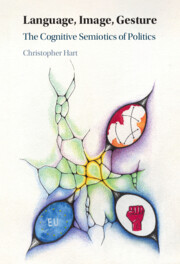2 - Principles of Cognitive CDA
Published online by Cambridge University Press: 08 January 2025
Summary
The chapter outlines key principles in Cognitive CDA, which inherits its social theory from CDA and from cognitive linguistics inherits a particular view of language and a framework for analysing language (as well as other semiotic modes). In connection with CDA, the chapter describes the dialectical relationship conceived between discourse and society. Key concepts relating to the dialogicality of discourse are also introduced, namely intertextuality and interdiscursivity. The central role of discourse in maintaining power and inequality is described with a focus on the ideological and legitimating functions of language and conceptualisation. In connection with cognitive linguistics, the chapter describes the non-autonomous nature of language, the continuity between grammar and the lexicon and the experiential grounding of language. The key concept of construal and its implications for ideology in language and conceptualisation are discussed. A framework in which construal operations are related to discursive strategies and domain-general cognitive systems and processes is set out. The chapter closes by briefly introducing the main models and methods of Cognitive CDA.
Keywords
- Type
- Chapter
- Information
- Language, Image, GestureThe Cognitive Semiotics of Politics, pp. 28 - 47Publisher: Cambridge University PressPrint publication year: 2025

